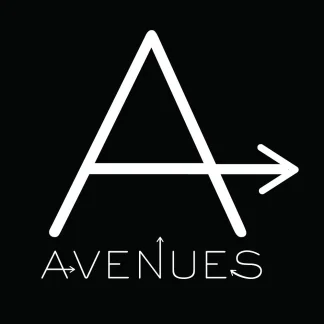CCYADF
CCYADF is a private rehab located in New Orleans, Louisiana. CCYADF specializes ...
A unique hospital based detox and residential 30 day program that is focused on the needs and unique circumstances of each individual. The contemporary facility has a youthful decor and vibe removing the barrier of institutionalized treatment. Truly a one-of-a-kind facility with a one-of-a-kind medical and clinical team.
Avenues Recovery Detox and Residential – Townsend is located between Metairie and Covington and is truly a one of a kind facility. Our primary focus is on medical stabilization and our residential clinical treatment program, rebuilding clients throughout the stages, from helplessness through stability. At Avenues, we treat the whole person – body, mind, and spirit, you will receive personalized care in a clean, modern, hotel-like setting. Life skills, wellness, nutrition, social acceptance, financial responsibilities, and family values are all key components of our treatment plans. As our clients progress so does the individualized care. Avenues Recovery Center has a second local facility in Metairie which focuses on extended aftercare. Our clinical team will work one on one with every patient to ensure that their stay is continued, and extended treatment is a primary focus!
Contact us for more information: (504) 608-5060

Connect with Townsend Detox New Orleans - Avenues Recovery Center by calling their admissions team directly.
(504) 608-5060 Website Get DirectionsThe Joint Commission, formerly known as JCAHO, is a nonprofit organization that accredits rehab organizations and programs. Founded in 1951, the Joint Commision's mission is to improve the quality of patient care and demonstrating the quality of patient care.
Joint Commission Accreditation: Yes
At Townsend, they interact every day with people who are touched by addiction. They understand how alcohol and drug use impacts important relationships, such as among family members. Because patients and their loved ones need a strong support network to fight the disease of addiction, they have incorporated a Weekly Family Night as a component of treatment because family members can play an important role in their loved one’s recovery.
Group therapy is any therapeutic work that happens in a group (not one-on-one). There are a number of different group therapy modalities, including support groups, experiential therapy, psycho-education, and more. Group therapy involves treatment as well as processing interaction between group members.
In individual therapy, a patient meets one-on-one with a trained psychologist or counselor. Therapy is a pivotal part of effective substance abuse treatment, as it often covers root causes of addiction, including challenges faced by the patient in their social, family, and work/school life.
Group therapy is any therapeutic work that happens in a group (not one-on-one). There are a number of different group therapy modalities, including support groups, experiential therapy, psycho-education, and more. Group therapy involves treatment as well as processing interaction between group members.
In individual therapy, a patient meets one-on-one with a trained psychologist or counselor. Therapy is a pivotal part of effective substance abuse treatment, as it often covers root causes of addiction, including challenges faced by the patient in their social, family, and work/school life.
In individual therapy, a patient meets one-on-one with a trained psychologist or counselor. Therapy is a pivotal part of effective substance abuse treatment, as it often covers root causes of addiction, including challenges faced by the patient in their social, family, and work/school life.
CCYADF is a private rehab located in New Orleans, Louisiana. CCYADF specializes ...
Ekems Healthcare Mental Health – Outpatient is a private rehab located in New Or...
Higher Expectations Awareness Program is a private rehab located in New Orleans,...
Desire Narcotics Rehabilitation Center is a private rehab located in New Orleans...